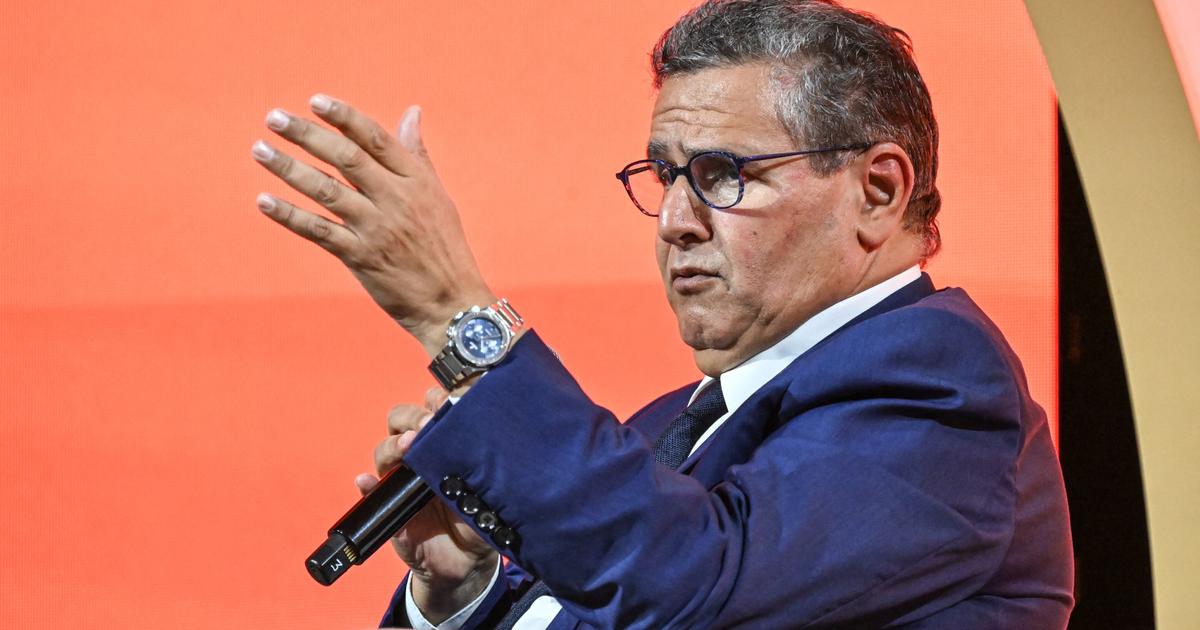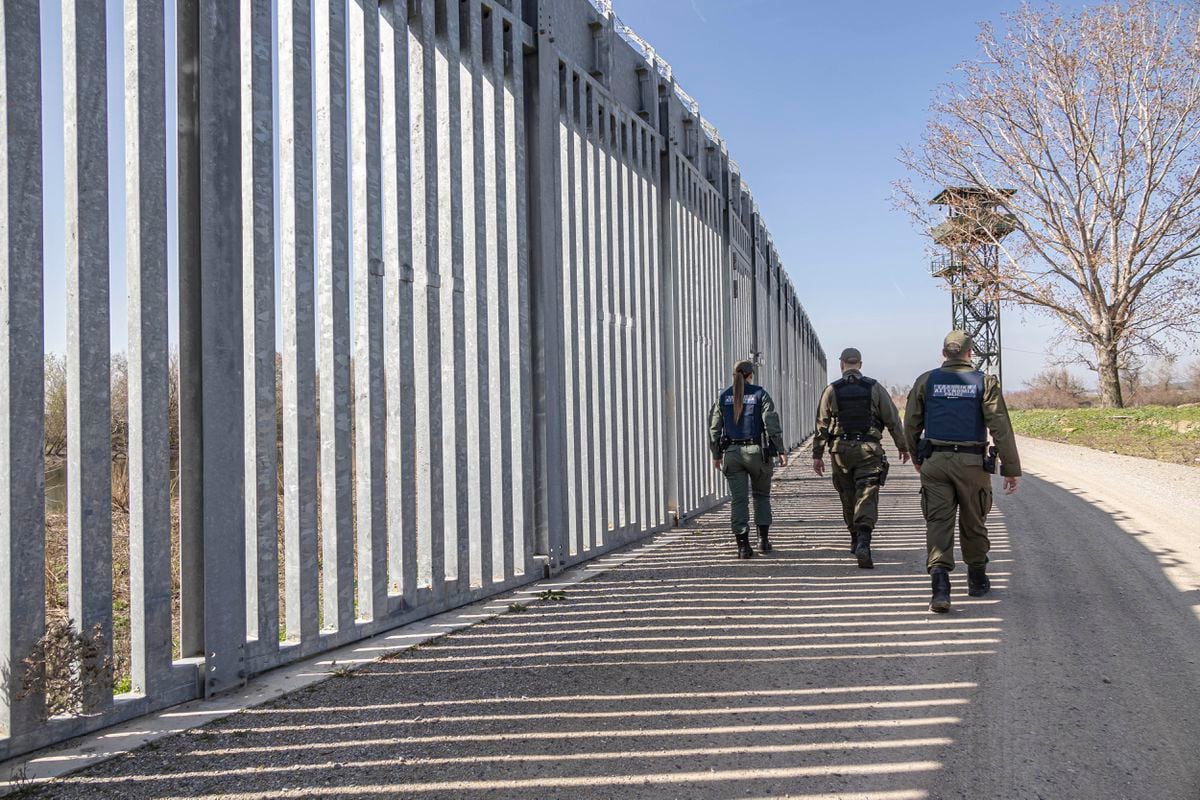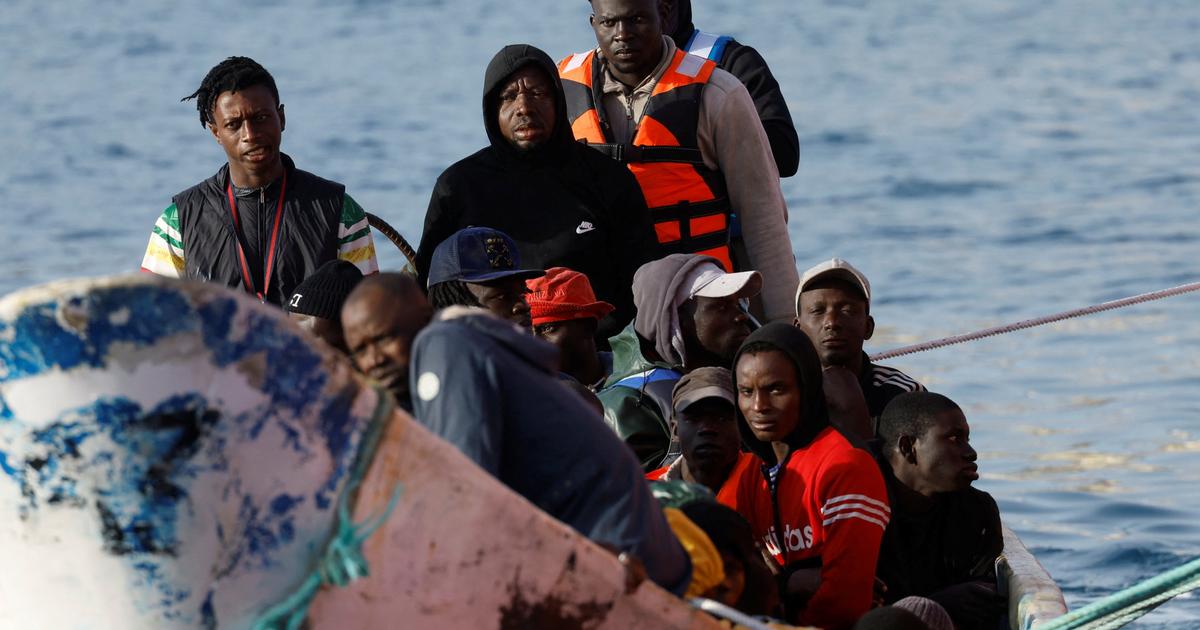Morocco will receive more money than ever from the European Union to control its borders.
Brussels is finalizing a package of at least 500 million euros with which part of Rabat's efforts against irregular immigration will be covered, according to community sources.
This new financing framework, which covers the period 2021-2027, far exceeds (almost 50%) the 343 million euros of the previous one.
This is a sign of the growing role of Morocco as a "very important" partner, not only of Spain or France, but of the entire community club.
"This amount gives an idea of the degree of ambition of Brussels that belies the fears that Spain had that the neighborhood to the south would be neglected," says a high-ranking community source.
The pact is closed, although its application will finish materializing in the fall.
The money will be distributed in different items that will cover integration and protection projects for refugees living in Morocco, but also forced returns, police cooperation and the fight against mafias, according to sources familiar with the package.
Rabat will not be the only beneficiary of European funding - the EU maintains action plans in the area of migration with all the North African countries, with the exception of Algeria -, but it is gaining weight.
Also at the turn of the summer, the financing that will go to the rest of the countries involved in the control of irregular immigration to Europe, including Spain's main African partners: Gambia, Senegal and Mauritania, must be closed.
More information
Oujda, the penultimate fence before reaching Spain
The negotiation of these 500 million has been going on for months.
Rabat kept its expectations and demands high regarding the distribution of European funds, while Brussels wanted more commitments from Morocco, specifically in the readmission of its nationals who entered the continent irregularly.
Spain has pressed by land, sea and air so that the rain of millions would satisfy Rabat, although, according to diplomatic sources, the European Commission was clear that Morocco should gain prominence on the EU migration board (determined by Libya and Turkey).
The agreed amount, in any case, does not cover the expenses that Morocco assures that it causes it to act as the gendarme of Europe.
According to an economic report from Brussels, Rabat says that it invests 435 million annually.
The money will come from the so-called Neighbourhood, Development and International Cooperation Instrument (IDVCI), a new budget tool, which has 79,500 million euros for the period, 13% more than in the previous budget period (2014-2020).
10% of the total of this fund may be linked to migration management.
The agreement was not easy.
Funds hung in the balance in May last year, when Morocco allowed 10,000 migrants to enter;
among them, more than a thousand children, in Ceuta.
The episode, comparable to the moves by Recep Tayyip Erdogan in Turkey or Aleksandr Lukashenko in Belarus when they pushed thousands of migrants and refugees to Europe, was not liked at all in Brussels.
"No one can blackmail Europe," said the vice president of the European Commission, Margaritis Schinas.
On the contrary, the Melilla tragedy of March 24, in which Moroccan agents acted brutally, may bring extra funding to Morocco.
A source familiar with the negotiation affirms that as a result of that episode it is possible that items will be included to improve and strengthen the protection system for migrants and refugees that has made Morocco a destination country.
The principle that governs in Brussels is summed up by an important community source: "Our neighbors have to be very clear that in migration they have more to gain by working with us than against us."
The massive entry into the autonomous city was left behind and Spain turned to reconcile with its neighbor to the South.
The pressure that Morocco had exerted so that the Spanish Government revised its position of neutrality on Western Sahara worked against all odds.
And last March, Spain sided with Morocco and backed its proposal for autonomy for its former colony instead of the self-determination referendum demanded by the Saharawis.
The turn of Pedro Sánchez alienated him with Algeria, the main ally of the Polisario Front, the national liberation movement of the Sahara, but it gave him some peace of mind on the borders.
Spain has problems when Morocco lowers its guard in its territory, since it depends excessively on the proactivity of its partner.
In 2018, when Rabat aspired to more European money, more than 64,000 migrants landed on Spanish shores, a historical record.
Then the EU responded with a package of more than 140 million and arrival numbers fell by half in 2019. Departures from the northern coasts of the country became highly controlled.
Riot police officers cordon off the area after the migrants reached Spanish soil and crossed the fences separating Melilla from Morocco on June 24.
Javier Bernardo (AP)
But the persecution of migrants does not make them disappear and police pressure made them look for other routes: in 2020, in the midst of a pandemic, the Canarian route was resurrected.
More than half of the 23,000 people who arrived in the archipelago that year were Moroccans, and the Moroccan-controlled Sahara was the main point of departure.
After the crisis in the islands, the 27 left in writing that the relationship with Morocco required a global rethinking and "long-term goals".
The reconciliation of Spain with Morocco has not yet led to a relevant drop in the arrival of immigrants, but different sources dedicated to border control assure that the predisposition has changed.
Joint patrols between the two countries have been recovered and increased and Spanish security sources assure that "the greater efficiency" of the Moroccan police is avoiding a large number of outings.
Two Spanish sources assure that, in the joint meetings after the end of the crisis, Morocco showed its willingness to readmit more immigrants.
Moroccans or from third countries.
Hot or by plane.
The best proof of collaboration, the most tragic, was seen in Melilla on June 24, when Moroccan agents violently contained the attempt of more than 1,500 people to cross the border post.
At least 23 migrants, most of them Sudanese refugees, were killed.
The Moroccan Association for Human Rights raises the number of deceased to 27 and the missing to 64.
133 arrived in Melilla.
The performance of Morocco's security forces in June contrasts with the view just four months earlier, when Rabat was still keeping the pulse of Madrid.
The Moroccan agents showed a very different attitude at the same fence and before another even more numerous jump that occurred at the beginning of March.
On that occasion, the security forces also allowed the group to reach the foot of the fence, but the containment was different and 900 people managed to enter Melilla.
After that episode, Spanish police and political sources wondered if this was a new measure of pressure.
The agreement on the Sahara came just two weeks later.
After the tragedy, Spain praised Morocco's efforts and stressed that it had been a "violent attack" on the border, sponsored by the mafias.
“Well resolved”, Pedro Sánchez came to celebrate.
The condemnation came from international organizations, such as the United Nations, and more lukewarmly from the European Commission itself, which called for an independent investigation.
"In all situations people have to be treated with dignity and respect," said European Commissioner for Home Affairs Ylva Johansson.
In private, many authorities raised their hands to their heads when they saw the corpses piled up in front of a European border, but as an important community source summarizes, a deal is a deal: “In Melilla it was shown that Moroccans are willing .
It was disproportionate
50% off
Subscribe to continue reading
read without limits
Keep reading
I'm already a subscriber








